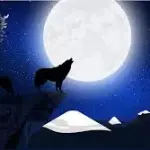
Our life exists in a context. In naturalistic terms we might say that this context is comprised of intertwined, open systems. Our physical system is intertwined with the great ecological systems of the earth, which depend on the solar system, which is itself intertwined with the galactic system, which is involved in systems that extend outward beyond the reach of our knowing. And going the other direction, our physical being is composed of smaller and smaller systems – through the organs and cells down to atoms and beyond.
Similarly, our mental systems (for lack of a better term) are intertwined with a variety of cultural systems – family, education, media and other communications systems, and a variety of other formal and informal informational systems. At the broadest extents we call these informational systems civilizations.
Thinking about the context of our life raises some interesting questions, such as:
1) What is the greatest context, the context that embraces all others? It strikes me as very important for people to be able to communicate about the idea of the greatest context; we live in a time where there is no longer a common term, a common understanding of this. From the naturalistic perspective, we await the next great cosmological theory – such as eternal inflation – to suggest an answer. For the monotheist, by definition the greatest context is God. If there was a piece of information that I could ask for from the distant future, it would be whether humans ever come to share a common understanding of the greatest context, and if so, What is that understanding?
2) Is there some principle of the self that exists apart from these systems, or is a self comprised of only the contingent interaction of these systems? If the first is correct, then what kind of thing is a self? In either case, I find that thinking of the self in these terms forces on me the recognition that the roots of my self extend immediately into the great otherness of these physical, biological and cultural systems.
3) Some thinkers use the word “process” where I have used the word “system.” The word process entails a greater sense of direction than the word system. Is the cosmos a directionless system or a directed process? Is there any way to know the answer to that question without fully understanding the greatest context?
4) Systems can be either in or out of equilibrium. To greater or lesser extents, we seem to be able to effect (to use a more neutral word than “choose”) the state of our own equilibrium. There is something very mysterious about a system that can effect its own equilibrium. There are no clear instructions on how to effect one’s equilibrium. There are, though, symbols in the various traditions that have been found helpful. I find the image of the sitting Buddha a particularly powerful signpost, pointing toward this end.
The questions and observation above all belong to the ordinary concerns of spirituality. Perhaps all spiritual questions in the end can be reduced to these: What is the self? What is the greater or greatest context within which the self exists? How can one bring one’s self into equilibrium or accord with this Ultimate Context?
Subscribe to The Spiritual Naturalist Society
Learn about Membership in the Spiritual Naturalist Society
__________
The Spiritual Naturalist Society works to spread awareness of spiritual naturalism as a way of life, develop its thought and practice, and help bring together like-minded practitioners in fellowship.
__________
Written by Thomas Schenk.

















